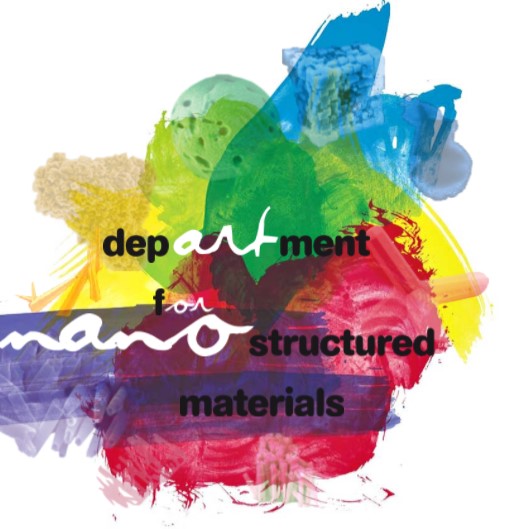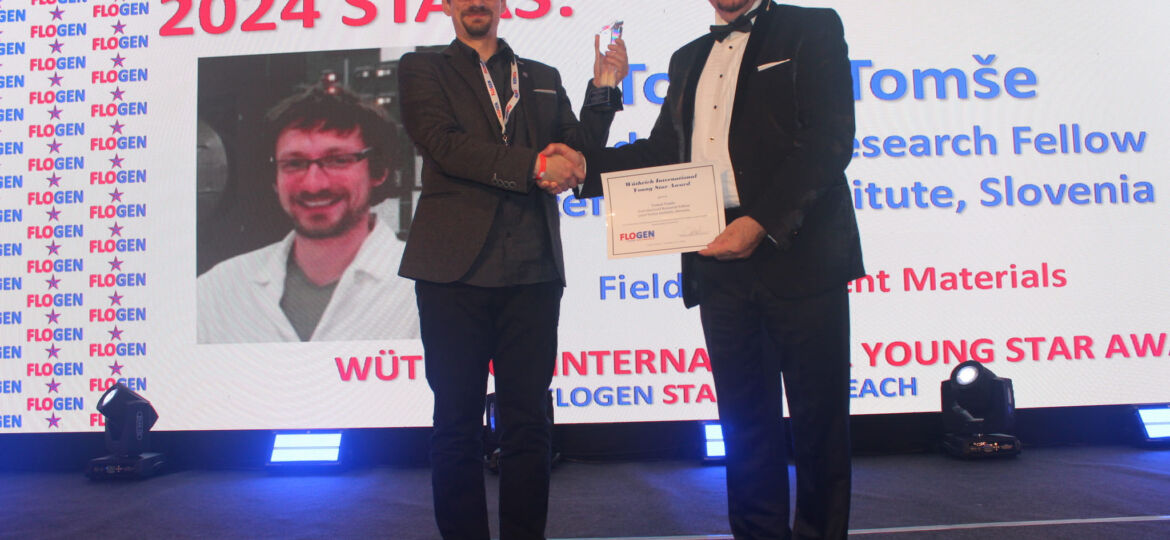Xiaoqing Pan – Seminar_18.07.2025
News
In partnership with the Faculty of Engineering, University of Ljubljana, we were awarded the third Rector’s Award for the patent as a final result of the EIT Manufacturing project aProMag. The main objective of the project was to prototype, validate and bring to market a technology for rapid prototyping of rotors for brushless DC motors and actuators using 3D printing in a magnetic field that enables anisotropic alignment of hard magnetic material. The advanced technology reduces waste through 3D printing technology, with very low waste and material used reusable up to 5 times (~97% material yield). Advanced technology reduces waste through 3D printing technology. The source of feedstock powder is raw material recovered from end-of-life NdFeB magnets, enabling a circular economy. The technology also significantly reduces the time to produce end products to test design concepts by up to 5 times and significantly reduces the cost of conventional injection moulding…
Oleksandr Hrushko – Seminar
Foster poster award Sana Shaukat was honored with the Best Poster Award for her research presentation at the conference held at Université Toulouse III Paul Sabatier. Her poster, titled “Spark Plasma Sintering Technique for Optimizing Magnetic Properties of Bulk Nanocrystalline Nd-Fe-B Magnet,” highlighted innovative advancements in enhancing the performance of Nd-Fe-B magnets, crucial for renewable energy systems and electrical machinery. The research utilized the Spark Plasma Sintering (SPS) technique to rapidly consolidate nanostructured materials while preserving their fine grain structure, essential for superior magnetic properties. By optimizing SPS parameters such as temperature and pressure, the study demonstrated notable improvements in magnetic performance without the use of heavy rare earth elements. This work emphasizes a cost-effective and efficient approach for developing high-performance magnets with improved thermal stability and coercivity, offering valuable solutions for next-generation energy and industrial applications.
dr. David Salamon – Seminar
Pasquale D’Angelo – Seminar
In October 2024, the Sustainable Industrial Processing Summit and Exhibition (SIPS 2024) was held in Crete, Greece, featuring plenary lectures by Nobel Laureates and multidisciplinary scientific symposia. Researchers from the Department of Nanostructured Materials presented invited lectures at the SISAM (Science of Intelligent & Sustainable Advanced Ferromagnetic and Superconducting Magnets) Symposium, dedicated to Prof. Dr. Ludwig Schultz, Professor Emeritus at the Metallic Materials and Metal Physics Institute, TU Dresden. At the event, Dr. Tomaž Tomše, a member of the Department, received the prestigious “Wutrich International Young Star Award” for outstanding scientific performance in the early stages of his career, awarded yearly by the FLOGEN Sustainability Network. Dr. Tomše’s work focuses on developing innovative manufacturing strategies for Nd-Fe-B permanent magnets, using rapid powder consolidation with reduced critical raw materials.

